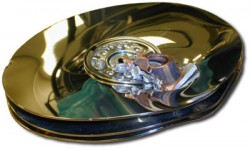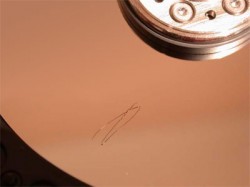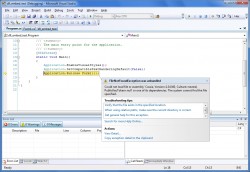Prevention
There are a number of ways you can go about protecting your hard drive and data, as well as out-thinking the hard drive failure gremlins. You may be able to keep one step ahead of the game with some of these preventative precautions.
One method of keeping your data safe is to make at least two partitions on your hard drive. The first is for your operating system and programs, and the second is for your data (documents, pictures, movie clips, music, etc.). If something serious goes wrong with your operating system, you can reformat and reinstall it without too much trouble Just make sure you grab anything in “My Documents”, your “Favorites” folder, as well as your emails and address book. Often times, these areas are overlooked are only remembered long after the old operating system is blown away. If you already have your operating system installed and data in place all on one partition, and don’t want to reinstall everything, Partition Magic ($59.99US) can repartition your drive non-destructively.
Updated AntiVirus software and regular spyware scans will also save you a lot of grief, not just for data loss prevention, but also for good overall operating performance on your system. Will several different AV programs installed on the same system provide even better protection? Not really. Most of the time, they will conflict with each other, causing system-wide problems, which can sometimes lead to a boot failure. One AV program should be sufficient.
- AVG – Free; an excellent AV package for home users.
- HouseCall – Free online virus scan. This is usually used in the absence of any other AntiVirus program, and when a virus is suspected to be residing on the system.
- Norton AntiVirus 2003 – Various prices through retailers (the 2004 version can be problematic with Windows XP). If you don’t already own 2003/2004, AVG is a more than capable AV package for virus protection.
- Symantec AntiVirus Corporate Edition 8.1 – If you’re lucky enough to be under a network that uses this software, it can be an extremely powerful package.
An investment in either a surge protector or a UPS (Uninterruptible Power Supply) may keep your system components from being fried in the event of a power outage or power surge. A UPS will keep your system up and running after the power has gone out. Essentially, it’s like a laptop battery, but bigger. Even though power surges and power outages are not the primary cause of drive failures, they can still wreck havoc with the other parts in your system, such as the power supply, motherboard, video card, CPU and RAM. At the very least, there should be a surge protector guarding your computer from these dangers.
A hard drive is not meant to be dropped, thrown against a wall, or beaten with a hammer. Any one of these things can damage the drive’s relatively fragile mechanical workings. A good jar can sometimes make the heads of the drive hit the platters and damage data. Treat the drive gently, and not like a piece of sports equipment. It would be a good idea to put the system in a relatively safe place where it won’t get bumped and knocked around. Leaving a tower hanging on the very edge of a table is just asking for Murphy’s laws to step in and take effect.

I'd say any drive shot with a bullet is pretty much a lost cause. (Original Image Copyright Michael Cox, 2000)

The deep scratch found on this failed drive's platter was most likely the cause of its untimely demise.
Keep an ear out for strange noises. Grinding, clunking, and/or excessive whirring or clicking noises can be warning signs of a failing hard drive. It would be a good time to backup the data immediately in the probable case that the drive finally will die. Repeated clicking is usually a sign of a failed or failing actuator, while a grinding noise is usually a sign that the ball bearings that keep the platters spinning are in bad shape or that a head is dragging on one of the platters itself. The longer you leave your computer running with these problems, the increasingly smaller amounts of data that there may be for you to be able to backup. As with anything mechanical, parts wear out and break down. Protect yourself from unexpected failures by backing up your data.




 AdamTheTech.com and respective content is Copyright 2003-2026.
AdamTheTech.com and respective content is Copyright 2003-2026.